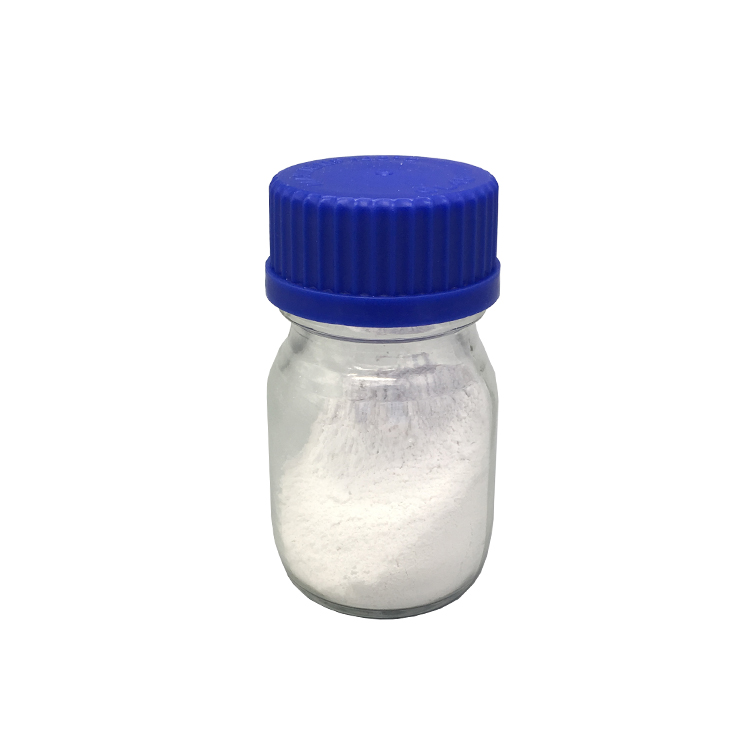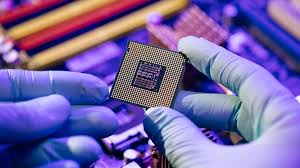The application of hafnium tetrachloride (HfCl₄) in semiconductor manufacturing is mainly concentrated in the preparation of high dielectric constant (high-k) materials and chemical vapor deposition (CVD) processes. The following are its specific applications:
Preparation of high dielectric constant materials
Background: With the development of semiconductor technology, the size of transistors continues to shrink, and the traditional silicon dioxide (SiO₂) gate insulation layer is gradually unable to meet the needs of high-performance semiconductor devices due to leakage problems. High dielectric constant materials can significantly increase the capacitance density of transistors, thereby improving the performance of devices.
Application: Hafnium tetrachloride is an important precursor for the preparation of high-k materials (such as hafnium dioxide, HfO₂). During the preparation process, hafnium tetrachloride is converted into hafnium dioxide films through chemical reactions. These films have excellent dielectric properties and can be used as gate insulation layers of transistors. For example, in the deposition of high-k gate dielectric HfO₂ of MOSFET (metal-oxide-semiconductor field-effect transistor), hafnium tetrachloride can be used as the introduction gas of hafnium.
Chemical Vapor Deposition (CVD) Process
Background: Chemical vapor deposition is a thin film deposition technology widely used in semiconductor manufacturing, which forms a uniform thin film on the surface of the substrate through chemical reactions.
Application: Hafnium tetrachloride is used as a precursor in the CVD process to deposit metallic hafnium or hafnium compound films. These films have a variety of uses in semiconductor devices, such as manufacturing high-performance transistors, memory, etc. For example, in some advanced semiconductor manufacturing processes, hafnium tetrachloride is deposited on the surface of silicon wafers through the CVD process to form high-quality hafnium-based films, which are used to improve the electrical performance of the device.
The Importance of Purification Technology
Background: In semiconductor manufacturing, the purity of the material has a crucial impact on the performance of the device. High-purity hafnium tetrachloride can ensure the quality and performance of the deposited film.
Application: In order to meet the requirements of high-end chip manufacturing, the purity of hafnium tetrachloride usually needs to reach more than 99.999%. For example, Jiangsu Nanda Optoelectronic Materials Co., Ltd. has obtained a patent for the preparation of semiconductor-grade hafnium tetrachloride, which uses a high-vacuum decompression sublimation process to purify solid hafnium tetrachloride to ensure that the purity of the collected hafnium tetrachloride reaches more than 99.999%. This high-purity hafnium tetrachloride can well meet the requirements of the 14nm process technology.
The application of hafnium tetrachloride in semiconductor manufacturing not only promotes the improvement of semiconductor device performance, but also provides an important material basis for the development of more advanced semiconductor technology in the future. With the continuous advancement of semiconductor manufacturing technology, the requirements for the purity and quality of hafnium tetrachloride will become higher and higher, which will further promote the development of related purification technology.

| Product Name | Hafnium tetrachloride |
| CAS | 13499-05-3 |
| Compound Formula | HfCl4 |
| Molecular Weight | 320.3 |
| Appearance | White powder |
How does the purity of hafnium tetrachloride affect semiconductor devices?
The purity of hafnium tetrachloride (HfCl₄) has an extremely important impact on the performance and reliability of semiconductor devices. In semiconductor manufacturing, high-purity hafnium tetrachloride is one of the key factors to ensure device performance and quality. The following are the specific effects of hafnium tetrachloride purity on semiconductor devices:
1. Impact on the quality and performance of thin films
Uniformity and density of thin films: High-purity hafnium tetrachloride can form uniform and dense films during chemical vapor deposition (CVD). If hafnium tetrachloride contains impurities, these impurities may form defects or holes during the deposition process, resulting in a decrease in the uniformity and density of the film. For example, impurities may cause uneven thickness of the film, affecting the electrical performance of the device.
Dielectric properties of thin films: When preparing high dielectric constant materials (such as hafnium dioxide, HfO₂), the purity of hafnium tetrachloride directly affects the dielectric properties of the film. High-purity hafnium tetrachloride can ensure that the deposited hafnium dioxide film has a high dielectric constant, low leakage current and good insulation properties. If hafnium tetrachloride contains metal impurities or other impurities, it may introduce additional charge traps, increase leakage current, and reduce the dielectric properties of the film.
2. Affecting the electrical properties of the device
Leakage current: The higher the purity of hafnium tetrachloride, the purer the deposited film, and the smaller the leakage current. The magnitude of the leakage current directly affects the power consumption and performance of semiconductor devices. High-purity hafnium tetrachloride can significantly reduce the leakage current, thereby improving the energy efficiency and performance of the device.
Breakdown voltage: The presence of impurities may reduce the breakdown voltage of the film, causing the device to be more easily damaged under high voltage. High-purity hafnium tetrachloride can increase the breakdown voltage of the film and enhance the reliability of the device.
3. Affecting the reliability and life of the device
Thermal stability: High-purity hafnium tetrachloride can maintain good thermal stability in a high temperature environment, avoiding thermal decomposition or phase change caused by impurities. This helps to improve the stability and life of the device under high temperature working conditions.
Chemical stability: Impurities may react chemically with surrounding materials, resulting in a decrease in the chemical stability of the device. High-purity hafnium tetrachloride can reduce the occurrence of this chemical reaction, thereby improving the reliability and life of the device.
4. Impact on the manufacturing yield of the device
Reduce defects: High-purity hafnium tetrachloride can reduce defects in the deposition process and improve the quality of the film. This helps to improve the manufacturing yield of semiconductor devices and reduce production costs.
Improve consistency: High-purity hafnium tetrachloride can ensure that different batches of films have consistent performance, which is crucial for the large-scale production of semiconductor devices.
5. Impact on advanced processes
Meet the requirements of advanced processes: As semiconductor manufacturing processes continue to develop towards smaller processes, the purity requirements for materials are also getting higher and higher. For example, semiconductor devices with a process of 14nm and below usually require a purity of hafnium tetrachloride of more than 99.999%. High-purity hafnium tetrachloride can meet the strict material requirements of these advanced processes and ensure the performance of devices in terms of high performance, low power consumption and high reliability.
Promote technological progress: High-purity hafnium tetrachloride can not only meet the current needs of semiconductor manufacturing, but also provide an important material basis for the development of more advanced semiconductor technology in the future.


The purity of hafnium tetrachloride has a crucial impact on the performance, reliability and life of semiconductor devices. High-purity hafnium tetrachloride can ensure the quality and performance of the film, reduce leakage current, increase breakdown voltage, enhance thermal stability and chemical stability, thereby improving the overall performance and reliability of semiconductor devices. With the continuous advancement of semiconductor manufacturing technology, the requirements for the purity of hafnium tetrachloride will become higher and higher, which will further promote the development of related purification technologies.
Post time: Apr-22-2025